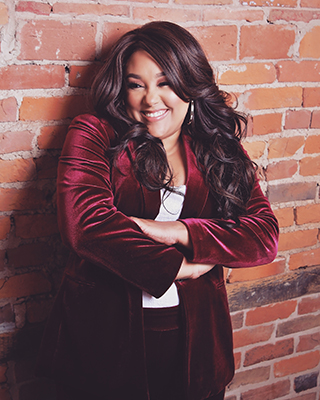A person’s ability to recover or bounce back from life’s challenges is known as resiliency. Resilient doesn’t mean unbreakable, and it doesn’t automatically mean that a person has experienced healing either. Life is full of challenges, and no one is exempt from experiencing them, but how we deal with them makes all the difference. It’s one thing to be controlled by something, and it’s another thing to be shaped by it. As someone who has stock in resiliency, I’ve used my experiences of child sexual abuse and other childhood trauma as an opportunity to help others overcome their own.
There are assumptions that many people innocently make about me. As a survivor of child sexual abuse (CSA), who chose to disclose my experiences publicly, I am labeled many things. I’ve learned about the ugly side of disclosure just as much as I’ve learned how beautiful it can be. Admitting that my father, a prominent pastor, had sexually abused me, was stressful and emotionally draining. Some people didn’t believe me and chose to abandon me- my immediate family included. I lost the support of those who should have supported me, but I gained an entire community of strangers who were proud of me.
While I believe that I am strong, courageous, and resilient, I am also still healing. Being strong and being whole is not the same. A person can display strength while being broken. The reality is that you don’t have to choose between being strong and being broken because you’re allowed to be both at the same time. Healing isn’t some magical overnight experience. It requires work, time, and consistency. In the age of #MeToo, many victims and survivors are finding their voice. In my experience, finding my voice didn’t mean that I automatically found peace or healing. One of the biggest miscalculations of my life was thinking that disclosing was the hardest and only part of healing. Yes, it is a hard part, but the hardest part is committing to the process and doing the work to heal. My disclosure meant that I was no longer going to live in shame of the sexual abuse that I experienced. No matter how terrifying it was, it was better to release it than to hold on to it.
After sharing my experience with the world, I decided to embrace therapy. Therapy helped me unpack my thoughts, feelings, and unresolved issues. I’d experienced so much trauma that I began thinking that it was all life had to offer me. If you aren’t careful, you’ll embrace an idea about your future based on a temporary feeling. For example, a broken heart can trick you into thinking that you’ll never love again. Losing a loved one can hurt so deeply that it convinces you that you won’t be able to go on without them. A failed college course makes you believe that you’ll never graduate. You have to put your feelings in check. Let them know where they belong. When I go through a challenging season of life, I see my feelings as valid responses to my current challenge. My feelings, at that moment, do not represent my future. My future is whatever I choose to make it. Our trauma is not a reflection of who we are. Our trauma is a part of a story that we haven’t finished writing.
This feature was submitted by Ashley Davis

Ashley Nicole Davis is the Director of Partnerships for Darkness to Light, a global nonprofit that empowers adults to prevent child sexual abuse (CSA). She is a single mother, author, facilitator and survivor of CSA who uses her life as a tool to help facilitate healing in the lives of others.
Follow her on Instagram today!







Add Comment
You must be logged in to post a comment.